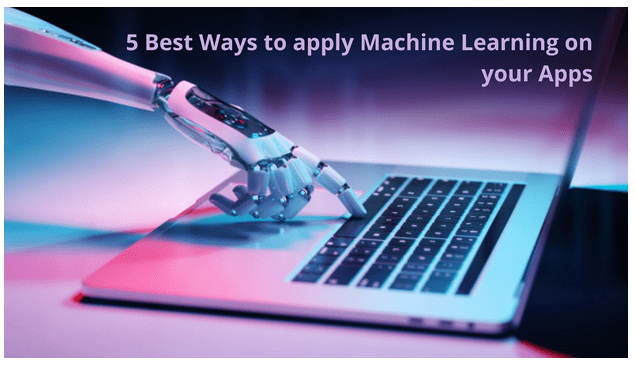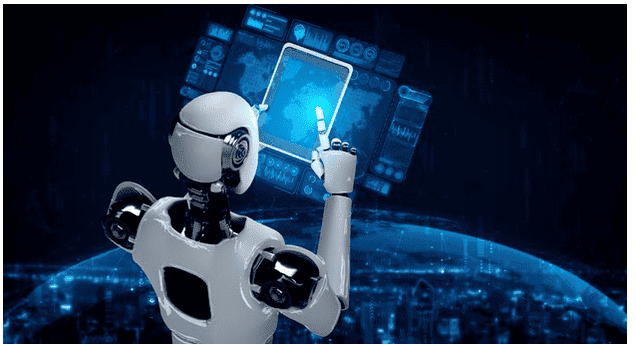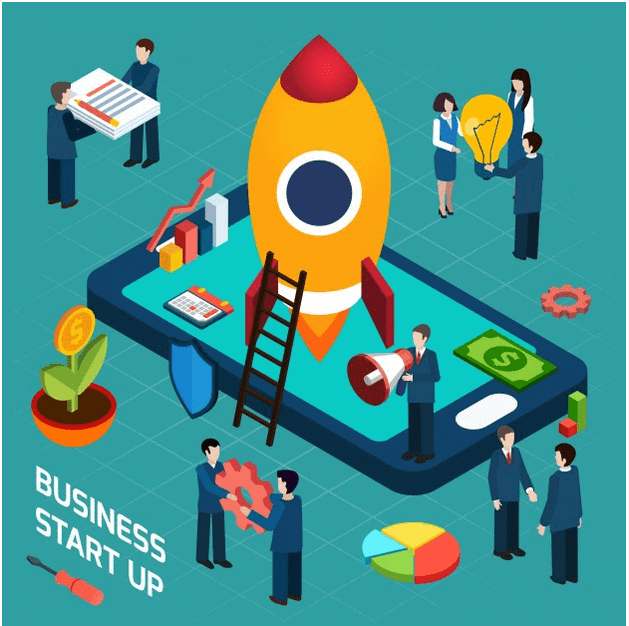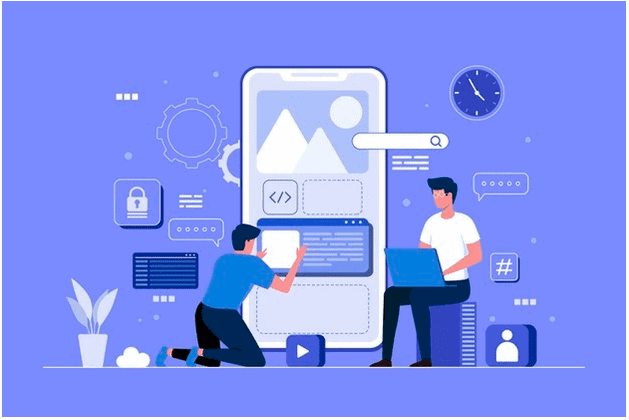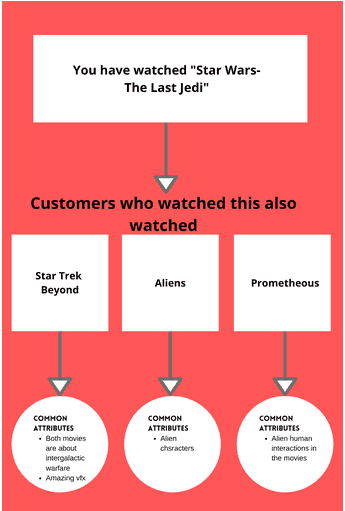Machine Learning is not a new technology. We have already seen many applications with advanced AI algorithms. Recently, when the pandemic hit the human race, there was a rising concern that our hands should not come in regular contact with the face.
It was essentially pointed out in a post on Reddit when this user wanted to create an app using Machine Learning to alert them whenever his hands came near to face. Though this is just one instance of ML’s application, it is almost an integral part of many mobile apps.
According to this tweet, 2019 witnessed more funding than any other AI-based technology, which was around $28.5 billion. Mobile apps have seen many new advancements in smart integrations, and ML has one of them.
So, how do you go about leveraging this promising technology? Here, we are going to discuss the five best ways to apply such algorithms on your apps.
How do I Create an App with Machine Learning?
ML algorithms can record, analyze, and learn data from diverse sources. These algorithms often do not need human intervention making them useful tools of automation. If you are thinking of creating a mobile app with Machine Learning capabilities, there are two simple ways to do it.
- Use a pre-built model.
- Create one for your project.
There are many pre-built models available in the market that are proven and tested. Some of these models are,
- Core ML by Apple
- TensorFlow Lite by TensorFlow
- Cloud AI by Google
- ML Kit by Firebase
If you want to customize your ML algorithm for mobile applications, creating a native app or web app can be fruitful. You can choose to develop native ML apps or web apps now with dedicated kits provided by iOS and Android platforms.
Now, let’s discuss the five best ways to use it in mobile apps.
1. ML for Product Research
Machine Learning algorithms can help you gather and analyze data from the market to evaluate the app idea. Here, you can employ three different ways of researching your product with ML.
1. Generative Research
It is an approach that you can use specifically while entering a new domain. Suppose you are planning to create a chatbot for an eCommerce app that helps customers with product recommendations.
ML helps you beta test a chatbot app prototype with few users to get a general idea of the CX.
2. Moderated Research
The first user session will provide you with factual data to create usability lists.
You will now know what kind of features customers will like; next, you can have moderated sessions for users and employ an ML algorithm to analyze the feedback.
3. Unmoderated Research
Create a working prototype of your chatbot app after several iterations of feedback integrations through Machine Learning algorithms.
Now, execute unmoderated working prototype sessions to have feedback on a larger scale before the final product’s grand launch.
2. ML for App Development
With the expansion of cloud services and serverless technologies, the integration of Machine Learning into app development is relatively easy. But, the creation of custom ML algorithms needs infrastructure and skilled professionals at the helm.
If you are interested in mobile app development with Machine Learning, you will need a good algorithm designed according to business needs.
Most of the native platforms offer Software Development Kits or SDKs specifically for Machine Learning. Take an example of the Teachable Machines from Google that allows you to teach your machine image recognitions and other such features.
It is an open-source project for anyone interested in Machine Learning models.
There are many types of models already used by giants like Netflix, Youtube, eBay, or Amazon, where Machine Learning algorithms offer recommendations to customers based on their usage patterns.
For example, you watch a movie on Youtube, and an ML algorithm will provide you multiple recommendations based on common attributes.
3. ML for Customer Engagement
According to Mihajlo Grbovic, the senior machine learning scientist at Airbnb,
“You would be surprised how many times you interact with a machine learning model when you are on Airbnb.com.”
Airbnb is an e-marketplace for users to rent out their houses and spare space for guests. The firm has research sessions with the users to have comprehensive data regarding its product.
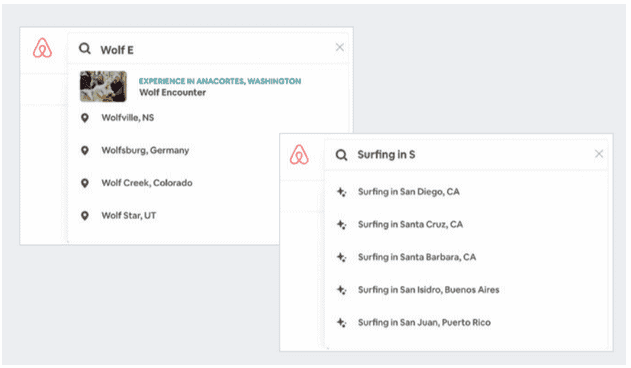
It is a Machine Learning project that allows the guests to search for Airbnb experiences than just houses or properties. For example, a person wants to explore Dubai’s famous Burj Khalifa, and they can search for the tallest building in the world at the Airbnb search bar.
One can use ML algorithms to achieve a high level of customer engagement with such personalized experiences.
4. ML for Personalization
Machine Learning can help you personalize products to a greater extent by projecting customer’s creativity. Nike tried to achieve something like that back in 2017 with a live design campaign called “Nike Makers’ Experience.”
Users can start using a birthday or anniversary input to create patterns. Here, an algorithm converts the typographical information into relative patterns and then scales them according to the customer’s taste.
There are endless color combinations and infinite customization patterns for consumers. You can use Machine Learning algorithms to induce such personalization in your mobile apps.
5. ML for Customer Support
Serving your customers is a quintessential part of the business. Even if you create the most fantastic product, engage customers, and personalize interactions with ML, all is in vain if you don’t have good customer support service.
Fortunately, Machine Learning has been used extensively over the decades for assisting customers.
Building Chatbots with Machine Learning is not the only way to enhance the customer experience. You can create an ecosystem of human customer service agents and Machine Learning models to generate better customer support systems.
The prediction engines of ML models can help you gauge customer behavior and recommend solutions or alternate products.
Conclusion
Machine Learning models can help you create smarter mobile applications or web apps and create better products, engagements, and CX.
Before diving into the ML approach for your apps, it is essential to understand your business’s data-driven nature. How much a Machine Learning model impacts your business will help identify the exact approach.
The best practice is to have a comprehensive research and ideation phase for your Machine Learning apps before getting started.
Author Bio
Hardik Shah works as a Tech Consultant at Simform – a dedicated team of mobile developers in Chicago . He leads large scale mobility programs that cover platforms, solutions, governance, standardization, and best practices. Connect with him to discuss the best practices of software methodologies @hsshah_


